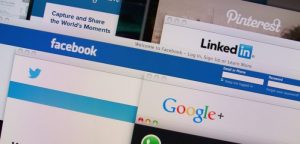LPT: What’s New in Social Media Marketing for Lawyers?
 In the March 2018 issue of the American Bar Association’s Law Practice Today webzine, I put around 2,500 words to web in my article, What’s New in Social Media Marketing for Lawyers? It seems like just yesterday that Facebook, Twitter and LinkedIn (and plenty others) came into our lives. It’s been longer than that…as a nine year old post this morning on Facebook reminded me of an event from days’ gone by. The tools have changed, and for business development purposes, lawyers have had to change with them.
In the March 2018 issue of the American Bar Association’s Law Practice Today webzine, I put around 2,500 words to web in my article, What’s New in Social Media Marketing for Lawyers? It seems like just yesterday that Facebook, Twitter and LinkedIn (and plenty others) came into our lives. It’s been longer than that…as a nine year old post this morning on Facebook reminded me of an event from days’ gone by. The tools have changed, and for business development purposes, lawyers have had to change with them.
In preparing to write the feature, I kept putting down notes on various social media news, programs and events—seemingly by the hour. At the same time I write this very blog post, I’m mere minutes away from moderating an ABA CLE on The Law and Social Media: Tips for Every Lawyer, with my colleagues Cynthia Dahl, Kathryn Deal and Molly DiBianca, covering social media issues that range from employment law matters to tweeting jurors, messaging witnesses, friending judges, cybercrime and prosecution, DMCA and trademark issues, virtual law practices, professionalism, and marketing.
Just last week, the ABA released Formal Opinion 480 from the Standing Committee on Ethics and Professional Responsibility reminding lawyers of the confidentiality obligations for lawyer blogging and tweeting. It is an opinion that has been widely panned as being late to the game. This provides another reminder as to the speed that social media runs. The suggestions are already somewhat old and outdated.
 Marketing Attorney Blog
Marketing Attorney Blog




